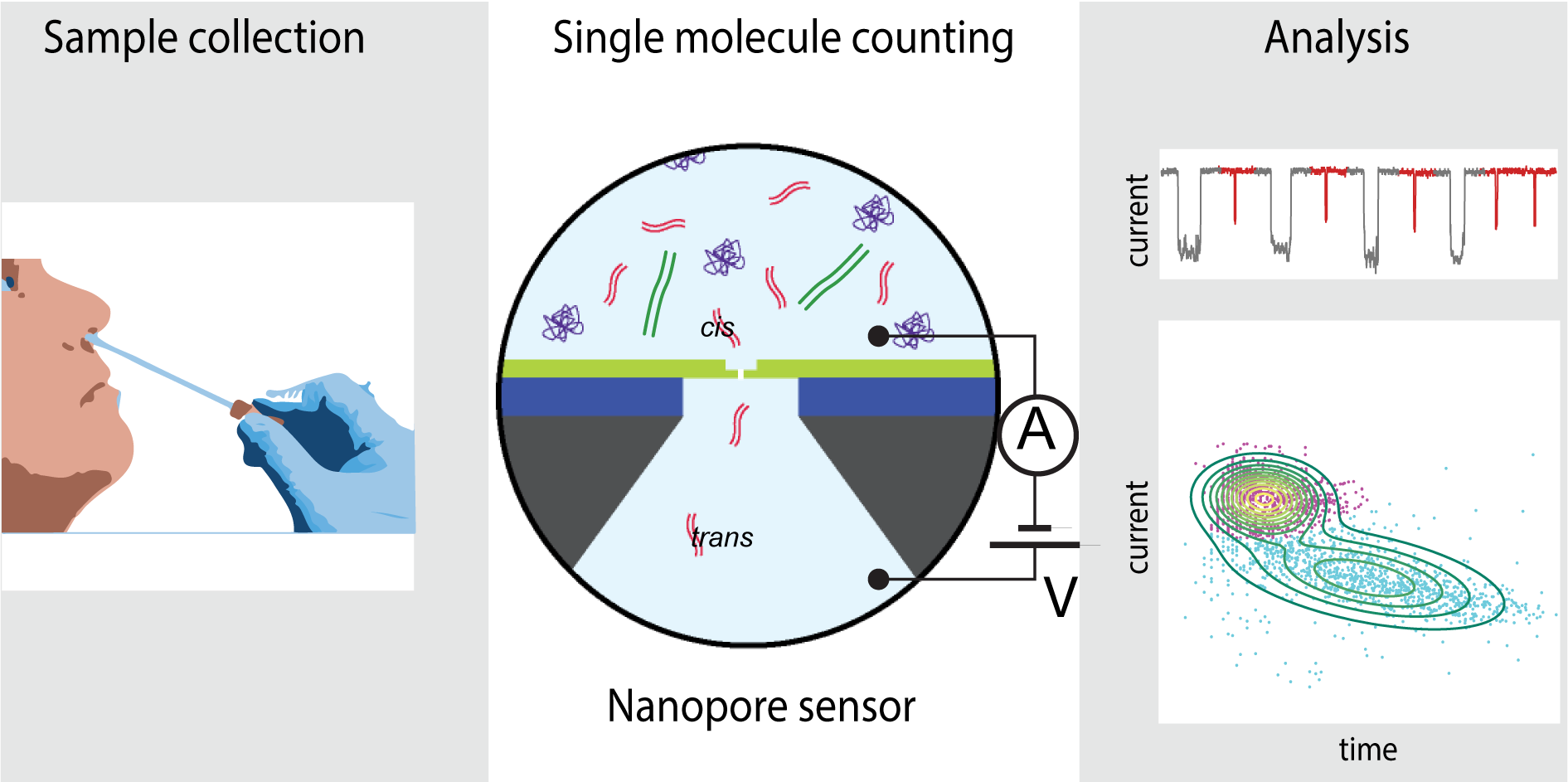Check our new paper in ACS Nano Journal about amplification-free mitochondrial DNA quantification
In our latest research, we introduce a solid-state nanopore method for label-free, amplification-free detection of mitochondrial DNA (mtDNA), a key biomarker for disease. Using machine learning and exonuclease digestion, we achieve high accuracy in distinguishing mtDNA from genomic DNA in biological samples. This approach offers picomolar sensitivity with minimal preparation, making it ideal for clinical diagnostics.
Our paper on SARS-CoV-2 sensing is out in Nanoscale journal.
In our research, we introduced solid-state nanopore sensing using a compact microfluidic device for label-free quantification of SARS-CoV-2 RNA in clinical nasal swab samples. This research was conducted in Prof. Meller’s lab in collaboration with Dr. Ronit Almog and her staff in the epidemiology unit in the Rambam Medical center. We graded nasal swab samples from >15 subjects and found that the SARS-CoV-2 radiometric nanopore index correlates well with the reported RT-qPCR threshold cycle for positive classified samples. Remarkably, nanopore analysis also reports quantitative positive outcomes for clinical samples classified as negative by RT-qPCR, suggesting that the method may be used to diagnose COVID-19 in samples that may evade detection.
Our work on nanopore sensing of ITP-focused analytes is out now in Nanoscale
Microfluidic device for coupling isotachophoretic sample focusing with nanopore single-molecule sensing
Nanopore sensing remains challenging at low target concentrations, where the detection rate is limited by slow diffusion of analytes into the sensing volume. In this work, we show that an electrokinetic preconcentration method called isotachophoresis (ITP) can be used to deliver a highly concentrated zone of analytes to a solid-state nanopore. The key to ITP-nanopore sensing lies in the ability to electrically decouple the two modes to avoid damaging the fragile dielectric membrane. By choosing electrolyte conditions that enable both efficient focusing and sensing, and by implementing electrical switching in a custom microfluidic device, we show that ITP focusing can enhance the event rate by over 300 times compared to free diffusion.
Prof. Meller delivered the Joan van der Waals colloquium in Leiden University
On October 26, 2018, Prof. Meller delivered the Joan van der Waals colloquium in the Department of Physics, Leiden University, the Netherlands. The broadly accessed colloquium was entitled “Nanopore bio-sensing: past, present and future” and covered over 20 years of nanopore research towards DNA sequencing as well as recent developments leading to
.





